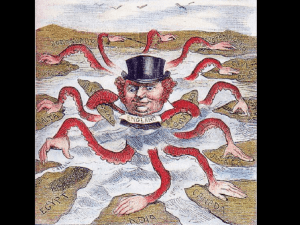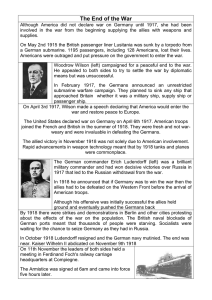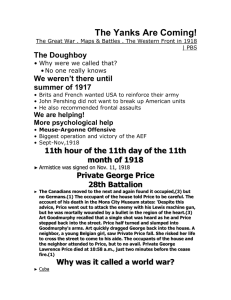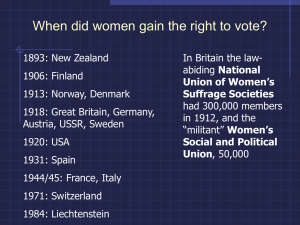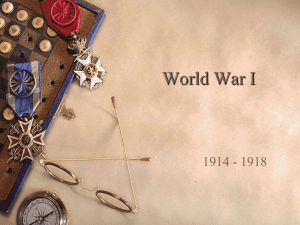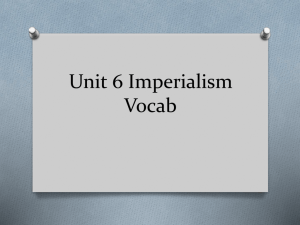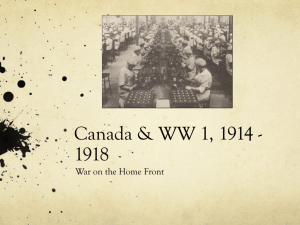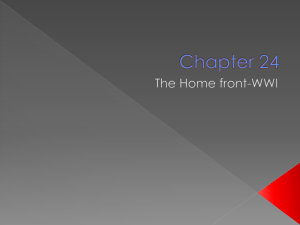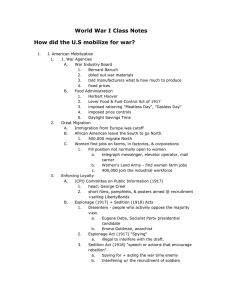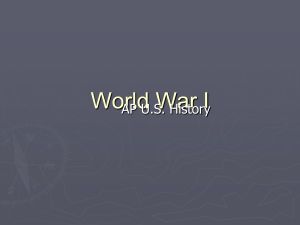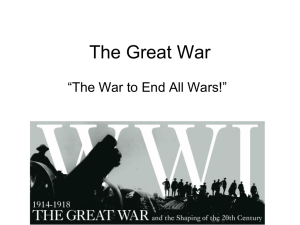File
advertisement
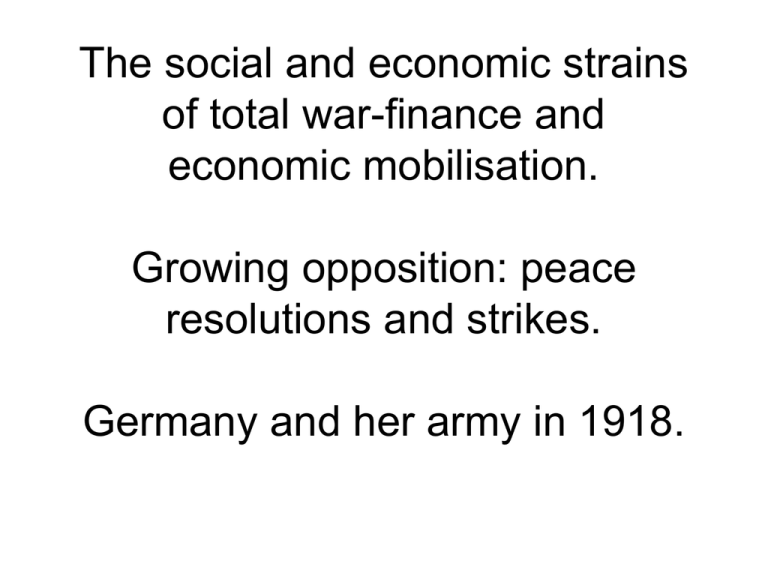
The social and economic strains of total war-finance and economic mobilisation. Growing opposition: peace resolutions and strikes. Germany and her army in 1918. Connector-Brainstorm the effects of war social The Effects of war political economic Outcomes • All students to make notes on the economic effects of World War 1 on Germany • Most students to research key points of opposition to the war by 1918 • Some students to see how this would affect future governments Effect of world war 1 • Mainly economic and social that would lead to political effects years later • By 1918 Germany was a shattered nation (as were many others) • Not just in terms of money but also men Physical damage • Roughly 2 million solders killed • 2.7 million permanantly disabled servicemen • 500 000 war widows • 1.2 million orphans • Physiological implications of those that fought in World War 1 Land • Luckily for Germany most of the fighting was done in France • Little of Germanys land was destroyed by trench warfare The Economy • Between 1913-18 the mark lost 75% of its value • Industry made vast profits- iron, coal, steel, which was resented by ordinary workers • Agricultural production fell (why?) • Dec 1916 Auxiliary Law gave government harsh powers over labour force • War financed by printing and borrowing moneywhat would this lead to? • Little booty from victory! • Only 16% of war cost met by tax More bad news • National debt rose from 5,000 million marksto 154 000 million • It would have taken 100% of Germanys budget just to repay the interest on the loans let alone pay the loans off! Living conditions (social) • • • • Real earnings fell by 20-30% Meat consumption fell by 12% per war level 1917- the turnip winter- only food avaliable Major food and fuel shortages due to British blockade • Disease- major flu epidemic killed 15 million world wide • Deaths from starvation and hypothermia went from 121 000 to 293 00 in two years • The number of working women increased by 50% Overall • Cost of war – 2 million killed – 6.3 million injured – £ 8, 394 million cost of war • What did they achieve Protests within Germany • By 1917 the Bergfrid was breaking down • German people were now divided by war • The British naval blockade was slowly starving Germany • Many socialists questioned why Germany was involved in the war • In April 1917 the Radicals opposed to the war formed the Independent Socialist Party • In July 1917 the Reichstag voted 212 to 126 for a peace resolution Why did nothing happen? • The German government had become incresingly dominated by Generals • From 1916 von Hindenberg and von Ludendorff ran a virtual military dictatorship • They dominated not just military but also economic and political decisions and blocked several approaches to peace • German nationalists demanded a SIEGFRIEDE (peace through victory) by Germany making major land gains in the east such as the FATHERLAND party • Read chapter 3 of your red book • Take notes from chapter 3 • Blue book p88-100 As a result of thid

